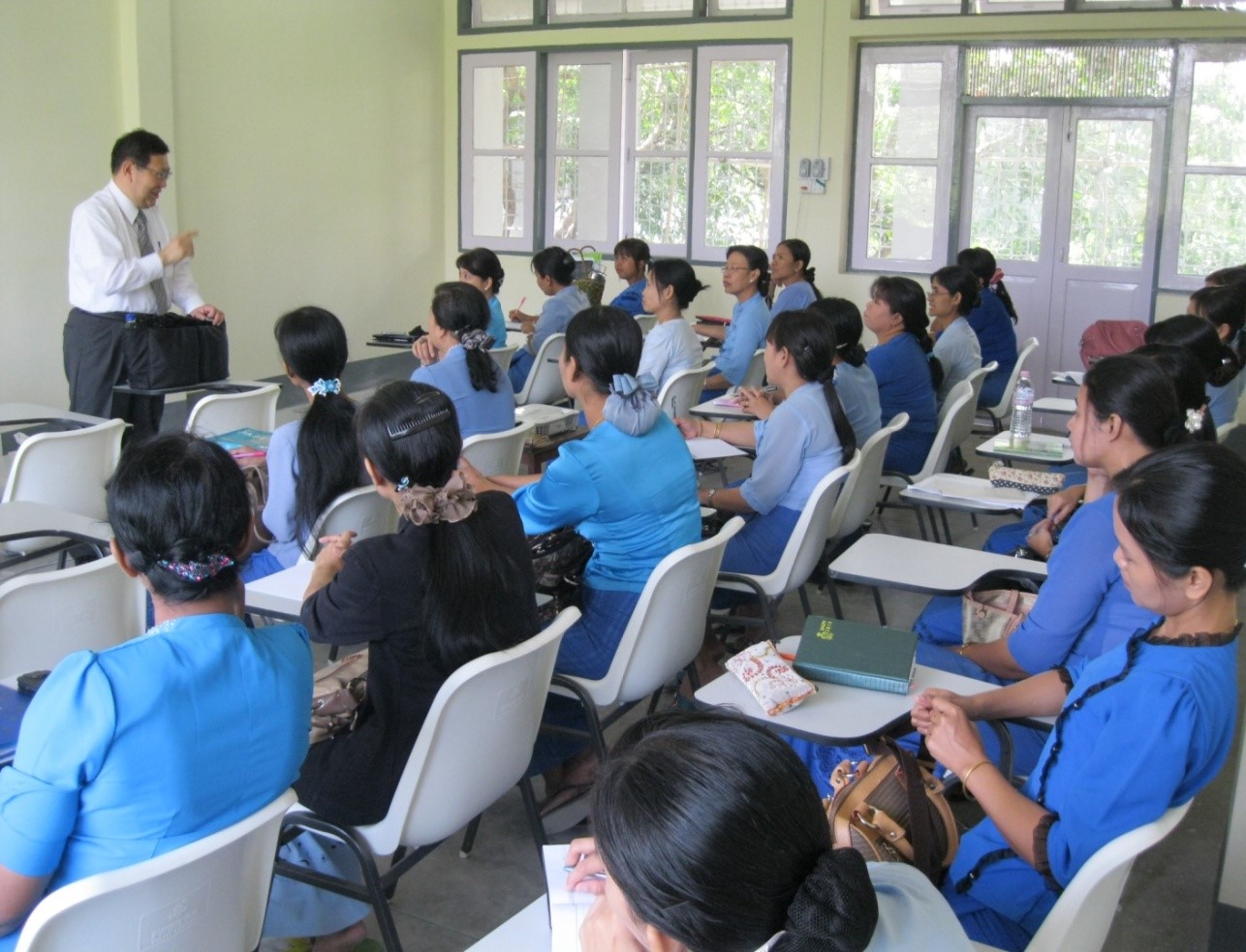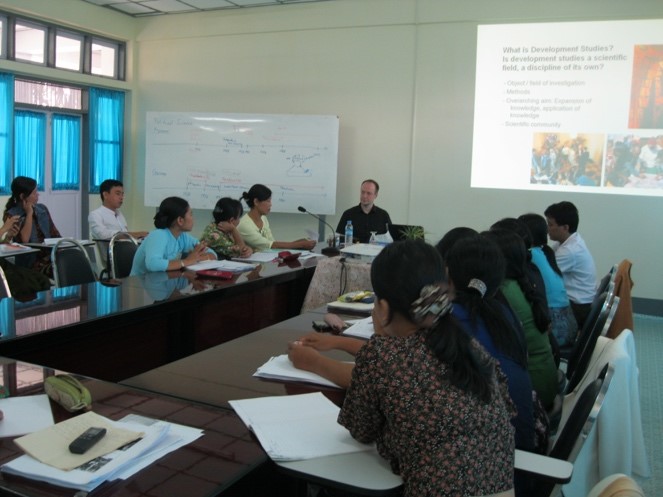(Continued from previous article on 30 november)
In light of commemorating the University centenary, the writer would like to highlight how the Department of International Relations has worked in collaboration with University administration and development partners by reviewing the existing curriculum of IR and drafting new curriculum for Political Science (PS) that was reintroduced again in 2013. Here, I would like to admit, today PS is far different from old days that we have learned in our university life.
Faculty system
In 1957, the University practiced faculty system and the Department of Modern History and Political Science was organized under the Faculty of Social Science. When new education system was introduced in the universities of Myanmar in 1964, the faculty system was abolished and departments took place in it. This new system brought Department of Modern History and Political Science almost to a halt. Again in 1976-77, regional colleges were introduced in new education system for 7 States and 7 Divisions in Myanmar. Political Science was reintroduced again in all Arts and Science Universities in Myanmar as a compulsory subject. However, it focused only on socialism and socialist ideology. In 1988, the department of PS as well as the subject came to an end along with student uprising that took place throughout the country. From 1988-2010, the idea of PS was not on the top agenda of university education as Myanmar was under military administration.
Series of reforms
When the new democratic government was formed in 2011, series of reforms took place and education is of no exception. The study of “Politics” became a hot debate in the Hluttaw (Parliament) and among the people who are interested in politics. It raised up with the question like, “where can Myanmar people learn politics systematically in this transformation age?” To address this question, the Ministry of Education assigned the Department of IR, University of Yangon and Mandalay to produce political scientists that will be in line with “New Transition Myanmar” in 2013. Since then, our Department has to take dual responsibilities: not only reviewing the existing curriculum of IR but also drafting new curriculum and course guide for PS. Doing those at the same time are quite challenging for IR faculty members. I never forget the days of transitional period of Myanmar as our faculty members devoted their time with those heavy workloads. Drafting a teaching plan for PS, getting approval for the plan from Board of Study, University Senate and Ministry of Education, organizing workshops and seminars for curriculum development with foreign scholars, inviting curriculum specialists, meetings and discussing with development partners are not an easy work for us. At the same time, we need to provide training for our faculty members to teach these new courses to the outstanding students.
The new courses
The new courses that we haven’t learned during our days of University life are: public policy and public administration, political theory, political economy, gender, media, peace and security and comparative politics etc. These new subjects are really important for the transition Myanmar in carrying out political and economic reforms.
Remarkable achievements
I would also like to share some remarkable achievements of the Department. A notable workshop that we participated for the first time was “Roundtable Discussion: Building Social Sciences and Humanities in Myanmar.” It was held with Myanmar Academy of Arts and Science and Central European University on 25-28 June 2012 at the Diamond Jubilee Hall, University of Yangon. The workshop was attended by members of Myanmar Academy of Arts and Sciences, Rectors and Professors from the University of Yangon, Yangon Institute of Education, Yangon Institute of Economics, Yangon University of Foreign Languages and University of Mandalay together with invited guests from Open Society Foundations. As an outcome of the discussion, Visiting Professor Programme for International Relations, Law and Archeology disciplines of University of Yangon were conducted with the expense of the Open Society Foundation (OSF). Under this programme, twelve visiting professors, four for each discipline, were invited for 2012-2013 Academic Year. Accordingly, we drafted and submitted the work plan on “Visiting Professor Programme” to support the teaching of “Development Politics” and “Political Science” in International Relations Department. With this enthusiastic efforts, distinguished professors from Europe and Asia trained the IR faculty members at the University with the support of OSF from 2013 to 2015. The OSF organized distinguished professors from Hong Kong University, Oxford University, Columbia University, American University, Nagoya University, International University of Japan and Central European University for this programme.
Research fellow programme
In 2016, when OSF focus more on research fellow programme, the Konred Adeneur Stiftung (KAS), a German Foundation continued to support this programme under the name of “Summer School Programme.” Four Summer School Programmes have been held at the Department of IR in 2017, 2018 and 2019. The Fourth programme for 2020 was held with online due to COVID-19 pandemic. These programmes brought together participants from the Department of IR of our University and other universities where IR is accommodated. Besides Summer School Programme, the Department organized three-day workshop on curricula development in 2017 and 2019 to learn the curricula and courses from Asian Universities such as De la Salle University, Tsinghua University, Chung Ang University, Jawaharlal Nehru University (New Delhi), Ewha Womans University of Korea, Passau university and ANU with the support of KAS.
Furthermore, with the desire to draft curriculum with learning outcomes and course guide, we received Ms Jennifer Jones from Australia. She was assigned as curriculum development officers under the programme of the Australia Volunteers for International Development with the support of Scope Global from 2015 to 2016. She was attached at the Department for two years and with her kind support, the faculty members are well adapted to draft the course guide and lesson plan. These programmes have contributed the curriculum development, teaching and research capacity of faculty members which in turn brings the University back into excellence.
GNLM



